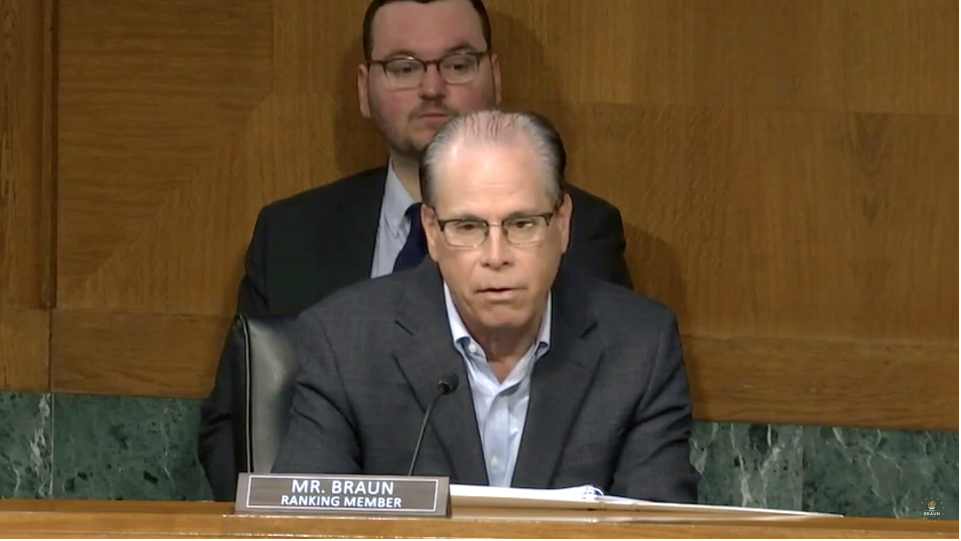Ranking Member Braun: “Guardianship is supposed to mean protection”
WASHINGTON—Today, Sen. Mike Braun, Ranking Member of the U.S. Special Committee on Aging, delivered the following opening remarks at the committee’s hearing titled Guardianship and Alternatives: Protection and Empowerment.
Remarks as prepared:
Thank you, Chairman Casey and our witnesses here today.
PROTECTING VULNERABLE PEOPLE IN GUARDIANSHIPS
There are far too many difficult and painful stories of guardianship abuse, often for people who did not require a guardianship in the first place.
No American should have their rights unnecessarily stripped from them by a single stroke of a pen in the name of guardianship.
There were a number of Hoosiers who shared their personal experiences with me. Thank you all for submitting your statements for the record.
I heard from the sister of Navy veteran Jimmy Johnston who shared that a court ordered guardianship ultimately led to her brother’s death.
While she had been designated as his health care surrogate, the professional guardian was appointed to make life or death medical decisions for Jimmy without prior medical knowledge or family history.
After Jimmy’s death, his family received a hospital bill of nearly $1.2 million dollars. Nearly all of it was billed to Medicare.
That is unacceptable. Guardianship is supposed to mean protection.
When done correctly, it is a valuable tool to protect vulnerable people.
But as so many stories have shown us, it can also lead to exploitation and abuse.
STATE SOLUTIONS
We must empower states with the tools and resources they need to protect and empower their most vulnerable residents.
Indiana has been an innovative laboratory on guardianship in recent years.
In 2018, it created a Guardianship Registry to improve data.
In 2019, Indiana passed a Supported Decision-Making law to expand options for people who need a protective arrangement.
This gives Hoosiers in need the chance to pick support that works best for them.
Indiana’s Volunteer Advocates for Seniors or Incapacitated Adults program connects volunteer guardians focused on personal autonomy to Hoosiers without support or protection.
These volunteers step in when they get calls from Adult Protective Services, nursing homes, or even banks alerting them to an incapacitated person who has no one else to look after their affairs.
Sarah Walker is the Director of Southern Indiana Adult Guardianship Services.
She is a self-described old soul who traces her love of working with older adults to her love for her grandparents.
Sarah and her team work across five counties in small town USA to help Hoosiers be as independent as possible.
They assisted one client struggling with drug use to find help and a better living arrangement.
Now they are working to restore her rights.
Hoosiers continue to show us how states can solve these issues.
The Adult Guardianship Office is managing these innovative services.
It works with the courts and stakeholders to find practical solutions for local issues in the guardianship system.
REMOVING BARRIERS FOR STATES
Our role is to remove barriers in states’ ways, not add them.
I am introducing the Guardianship Grant Flexibility Act to remove barriers by making federal guardianship grants more flexible.
This bill would allow states to recruit and train law students to represent respondents in guardianship cases.
Law students interested in protecting the rights of older adults should not be held back by arbitrary federal interference.
This is a commonsense reform to give states more tools to protect people in need.
I look forward to hearing more about commonsense steps we can take to strike that right balance between protection and freedom.
And I look forward to hearing how states can learn more from each other on this issue.
Thank you, Chairman – I yield back.
###
